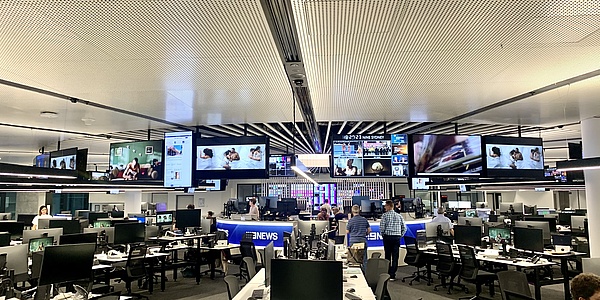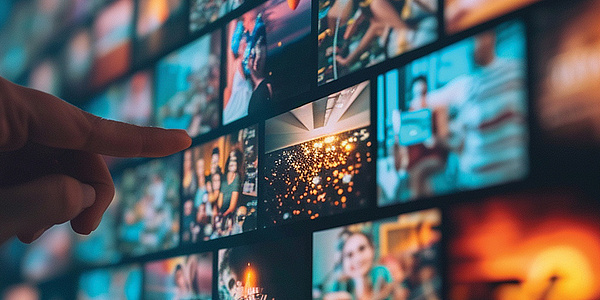
The rise of Generative AI in media and entertainment

Artificial intelligence offers both boundless opportunities and complex challenges in media and entertainment
In an era defined by digital acceleration, media and entertainment industries are standing at the crossroads of a transformative journey. The advent of Generative AI, a groundbreaking branch of artificial intelligence, is revolutionizing content creation. As this technology continues to advance, GenAI is reshaping media & entertainment in unprecedented ways, offering both boundless opportunities and complex challenges.
This white paper delves into the impact of Generative AI on the media industry, exploring its historical roots, its current applications, and its potential to redefine the future of content creation and distribution.
The evolution of Generative AI
Generative AI, an awe-inspiring technology, has taken the media industry by storm. It's a culmination of decades of research and development in the field of artificial intelligence. It plays a crucial role in accelerating content creation, increasing efficiency, and reducing costs while enhancing creativity, innovation, and personalization. The technology is vital in a world where digital content is consumed at an ever-increasing pace.
The journey began in the 1950s with the creation of the Turing test, which distinguished machine-generated results from those produced by humans. In recent years, there has been an exponential growth in the size of AI models, with GPT-2, GPT-3, and GPT-4, which contain billions to trillions of parameters, leading the development.
In subsequent decades, progress in neural networks, machine learning, and natural language processing paved the way for Generative AI. The late 2010s witnessed breakthroughs in Generative Adversarial Networks (GANs) and large language models such as ChatGPT. These developments drastically improved the performance, output, and quality of Generative AI models.
The collaboration between tech giants and investments in open-source material also accelerated this progress. Microsoft's substantial investment in OpenAI and the adoption of AI products into their ecosystem ignited an AI arms race among industry leaders, including Google and Meta (formerly Facebook). Open-source communities played a vital role in driving the development of Generative AI technology. For instance, Meta unintentionally released its large language model to the public, enabling the open-source community to modify it for a Raspberry Pi in just a matter of weeks. This demonstrates the potential of open-source collaboration in advancing technology.
Applications of Generative AI in the media industry
The media industry has a history of embracing new technologies, and AI has been a valuable tool for years. However, Generative AI has opened up new horizons. AI models are now capable of creating a wide range of content, from writing and summarizing news articles to generating images for graphic design and illustrations. There are also advancements in real-time content generation, emotion and sentiment analysis, personalized and interactive experiences, and cross-modal content generation.
Specific advancements include OpenAI's DALL-E and GPT-4, Meta/Facebook’s LLaMA, Leonardo.Ai, RunwayML, LeiaPix, Synthesia, and audio generation tools like Codex and Eleven Labs. These tools are used for tasks ranging from automated writing, summarization, and translation to the generation of art, graphic design, 3D models, and designs for films and advertisements.
Furthermore, Generative AI is becoming increasingly important in news broadcasting, with the use of virtual news anchors, AI-generated video content, real-time video analysis, summarization, and automating news article generation, summaries, and fact-checking. It is also playing a significant role in enhancing social media engagement and marketing and advertising with AI-generated content, personalized recommendations, AI-driven targeting, and dynamic ad generation.
Copyright and ethical considerations
While AI offers exciting possibilities, it also raises questions about copyright and ethics. Users must be aware of the terms and conditions when using AI services. Ownership of AI-generated content varies depending on the platform or service provider. Copyright claims and ethical concerns arise when AI-generated content resembles the work of creators who may not have granted permission.





